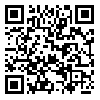1. Hardesty JL, Ogolsky BG, Raffaelli M, Whittaker A. Relationship dynamics and divorcing mothers’ adjustment: Moderating role of marital violence, negative life events, and social support. Journal of Social and Personal Relationships. 2019;36(11–12):3651–72. [
DOI]
2. Hezarjaribi J, Entezari A, Niyyati M. Divorce trends in Iran between 2004-2013. Journal of History Culture and Art Research. 2017;6(4):1108–22. [
DOI]
3. Hawkins AJ, Fackrell TA. Should I keep trying to work it out? sacred and secular perspectives on the crossroads of divorce. Brigham Young University Studies. 2011;50(2):143–57.
4. Symoens S, Colman E, Bracke P. Divorce, conflict, and mental health: how the quality of intimate relationships is linked to post-divorce well-being. Journal of Applied Social Psychology. 2014;44(3):220–33. [
DOI]
5. Rahman MM, Giedraitis DVR, Akhtar MT. The social sanction of divorce: who ultimately pay the social costs of its adverse effects? Sociology and Anthropology. 2013;1(1):26–33. [
DOI]
6. Umberson D, Williams K, Powers DA, Chen MD, Campbell AM. As good as it gets? a life course perspective on marital quality. Soc Forces. 2005;84(1):493–511. [
DOI]
7. Olson D. FACES IV and the Circumplex Model: validation study. J Marital Fam Ther. 2011;37(1):64–80. [
DOI]
8. Lazaridès A, Bélanger C, Sabourin S. Personality as moderator of the relationship between communication and couple stability. Europe’s Journal of Psychology. 2010;6(2):11–31. [
DOI]
9. Park J-H, Park J-H. The relationships among interpersonal relationship anxiety, college adjustment, self-control, and smartphone addiction in nursing students. Journal of the Korean Data and Information Science Society. 2017;28(1):185–94. [Korean] [
DOI]
10. Ye B, Lei X, Yang J, Byrne PJ, Jiang X, Liu M, et al. Family cohesion and social adjustment of chinese university students: the mediating effects of sense of security and personal relationships. Curr Psychol. 2021;40(4):1872–83. [
DOI]
11. Cramm H, Norris D, Venedam S, Tam‐Seto L. Toward a model of military family resiliency: a narrative review. Journal of Family Theory & Review. 2018;10(3):620–40. [
DOI]
12. Hoge EA, Austin ED, Pollack MH. Resilience: research evidence and conceptual considerations for posttraumatic stress disorder. Depress Anxiety. 2007;24(2):139–52. [
DOI]
13. Bonanno GA. Loss, trauma, and human resilience: have we underestimated the human capacity to thrive after extremely aversive events? Am Psychol. 2004;59(1):20–8. [
DOI]
14. Rutter M. Psychosocial resilience and protective mechanisms. Am J Orthopsychiatry. 1987;57(3):316–31. [
DOI]
15. Kissane DW, Bloch S, Smith GC, Miach P, Clarke DM, Ikin J, et al. Cognitive-existential group psychotherapy for women with primary breast cancer: a randomised controlled trial. Psychooncology. 2003;12(6):532–46. [
DOI]
16. Couper J, Collins A, Bloch S, Street A, Duchesne G, Jones T, et al. Cognitive Existential Couple Therapy (CECT) in men and partners facing localised prostate cancer: a randomised controlled trial. BJU Int. 2015;115 Suppl 5:35–45. [
DOI]
17. Collins AL, Love AW, Bloch S, Street AF, Duchesne GM, Dunai J, et al. Cognitive Existential Couple Therapy for newly diagnosed prostate cancer patients and their partners: a descriptive pilot study. Psychooncology. 2013;22(2):465–9. [
DOI]
18. Bahmani B, Najjar MM, Sayyah M, Shafi-Abadi A, Kashani HH. The effectiveness of cognitive-existential group therapy on increasing hope and decreasing depression in women-treated with Haemodialysis. Glob J Health Sci. 2016;8(6):219–25. [
DOI]
19. Jalili Nikoo S, Karimi Z, Nejatinejad N, Bahmani B, Naghiaee M, Ghasemi Jobaneh R. Effectiveness of cognitive Existential Group therapy on quality of life of elderly people. Armaghane danesh. 2017;21(10):1013–21. [Persian] [
Article]
20. Delavar A. Educational and psychological research. Tehran: Virayesh Pub;2015. [Persian]
21. Thorpe LP, Clark WW, Tiegs EW. California test of personality, 1953 revision. Forms AA and BB, primary. elementary, intermediate, secondary, adult levels. Oxford, England: California Test Bureau; 1953.
22. Hashemian F, Shafiaabadi A, Soudanil M. Effect of anger control skills training onindividual-social adjustment of first-grade femal secondary education students in Mahshahr. Knowledge & Research in Applied Psychology. 2008;10(35):1–14. [Persian] [
Article]
23. Connor KM, Davidson JRT. Development of a new resilience scale: the Connor-Davidson Resilience Scale (CD-RISC). Depress Anxiety. 2003;18(2):76–82. [
DOI]
24. Shakerinia I, Mohammadpour M. Relationship between job stress and resiliency with occupational burnout among nurses. J Kermanshah Univ Med Sci. 2010;14(2):161–9. [Persian] [
Article]

 ، حسن حیدری*1
، حسن حیدری*1 
 ، حسین داوودی1
، حسین داوودی1 






